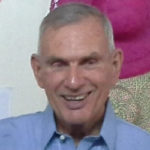Australian reporting on international affairs leaves much to be desired as recent comments on the Philippines and Russia show. While the situation in Mindanao must be taken seriously, it is important to understand that only 20% of the inhabitants are Moslems and that most of the island is inhabited by Christian migrants. This doesn’t seem to be understood by some commentators. The threat is not to the island but to the south. Russia also gets superficial treatment which tends to descend into a goodies and baddies approach instead of a balanced one.
An article by Peter Hartcher in the SMH for 12 September highlights the poor understanding of the world by far too many Australian journalists in the mainstream media. He deals with five topics, two of which show a total unfamiliarity with Russia and the Philippines. The following comments should not be seen as an attack on an individual but on the superficial cliche’ ridden reporting of so much of our media. Hartcher is not Robinson Crusoe and I do agree with his observation that preoccupation with Caribbean hurricanes and same sex marriage tends to divert attention from what are surely more important topics.
His coverage of events in Mindanao show that he does not know the island and that he doesn’t know the Philippines. He writes about the “Philippines island of Mindanao and the Philippines army”. Perhaps he just doesn’t know the difference between a noun and an adjective but nobody at all familiar with the country would call the Philippine army the Philippines army any more than an Australian would talk about the Australia army. It is not just a matter of poor grammar but shows that the author is not familiar with the country. (Yes I know we talk about the England team but they don’t play cricket in the Philippines.)
My second criticism is his suggestion that current events in Marawi have made the island of Mindanao “daily more chaotic, more ungovernable and more impoverished”. This may be true of the Moslem areas of the island but surely is not true of the Christian areas which make up most of the island and remain largely unaffected. About 20% of the population of Mindanao gave their religion as Moslem in the most recent census and 70% Christian – the rest are tribal groups in the hills. Similarly, the areas used for training by the various groups of trouble makers are in a limited area. Most of the Christians migrated from the Visayas but a minority from elsewhere in the Philippines. The Christian area could perhaps at some stage become threatened by terrorist activity but Moslems would get no support from the Christians and presumably would not waste their time in hostile territory when there are more fertile areas for infiltration to the south. Terrorist attacks on the city of Davao are also possible as a gesture but, again, would not get support.
The section on Russia again shows a poor understanding of what is going on. The claim that the Russian “invasions of Georgia and Crimea” plus the destabilisation of Ukraine are cause for concern elsewhere need to be examined more carefully. It is true that the Baltic states are asking for NATO protection and that the Russians are conducting exercises along the border. However, it is also true that NATO is conducting exercises along the Russian border and that an atmosphere of mutual suspicion exists. The Russian invasion of Georgia was in response to a Georgian attack on Russian speaking South Ossetia which had declared independence by an overwhelming majority. The action was a part of a much longer and more complicated process which can be easily checked on the net. Russian forces withdrew promptly as part of a negotiated solution. It was a purely local event although it can be seen as evidence of a Russian intention to protect the rights of Russians outside of Russia. However, Russia did negotiate and did withdraw.
The invasion of Crimea was also a special case because Russia had political, historical and strategic interests there. Putin’s mistake, in my view, was not to have a credible international supervision of the election which he would have won, albeit with a lesser majority than the one he claimed. Ukraine is a very complicated situation which is mixed up in history and Ukrainian domestic politics.. The current problems were started by the Ukrainian Government abandoning a multicultural Ukraine for a unitary state which the Russian speakers saw as an attack on their rights as Ukrainians. Russia has intervened to support them in much the same way as the USA has supported insurgents who suited US interests. We may question the morality of both the US and Russian actions but it does not follow that Russian intervention in Ukraine is a precursor to attacks on other neighbours. There is much to criticise in Putin’s Russia but also in Ukraine and NATO. A more balanced approach would put both sides of the story.
It is a truth universally acknowledged that once a story or point of view gets into the media it is very hard to dislodge. Our media gets much of its international material from foreign sources, mainly the USA, and tends to reflect that point of view without much critical Australian input. We do have some good foreign correspondents and commentators who know the world and our region but far too many do not.
Cavan Hogue is a former diplomat who served as deputy head of mission the Philippines and continues to visit. He speaks Tagalog and has travelled widely in Mindanao and other parts of the country. He was also Ambassador to Russia.




